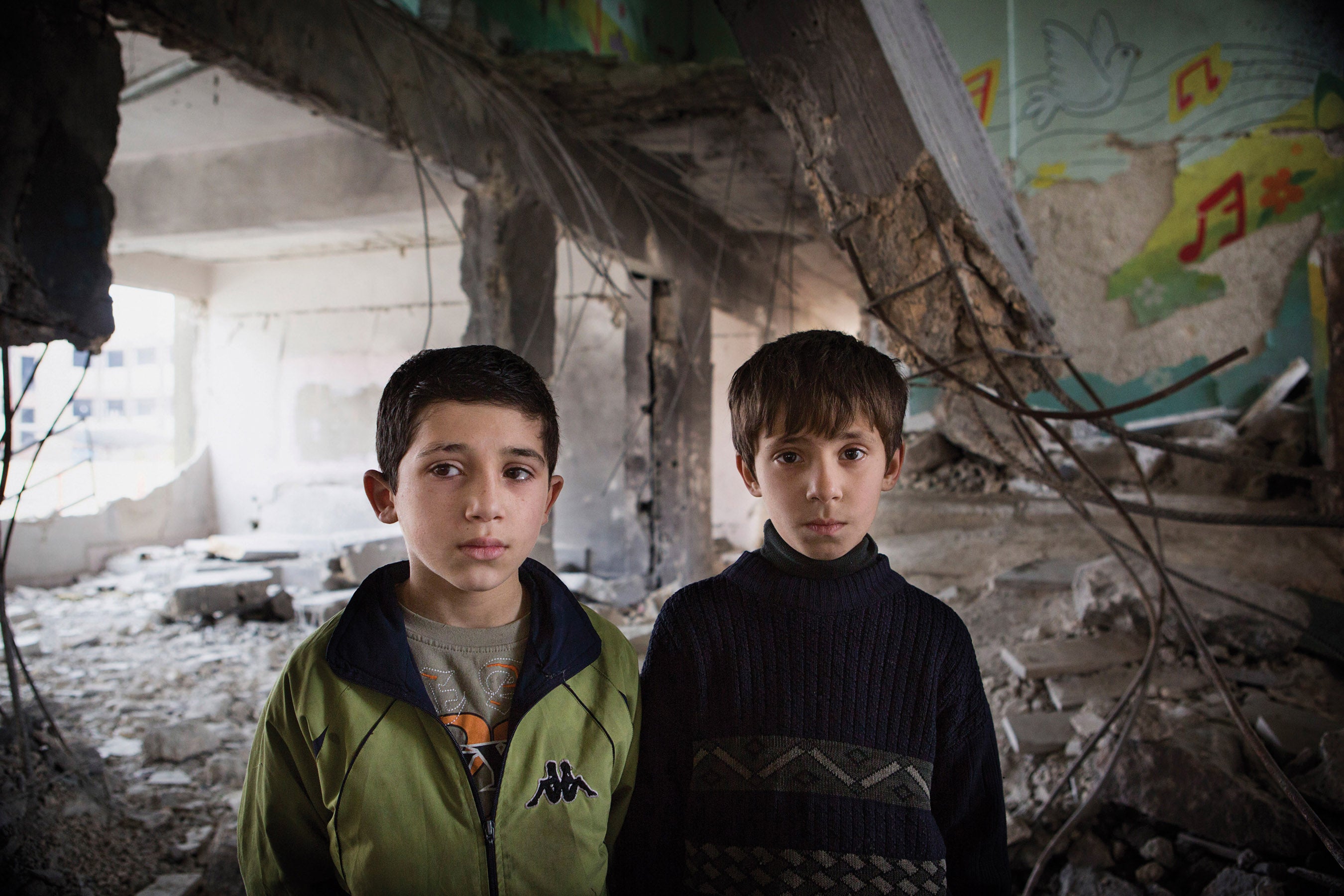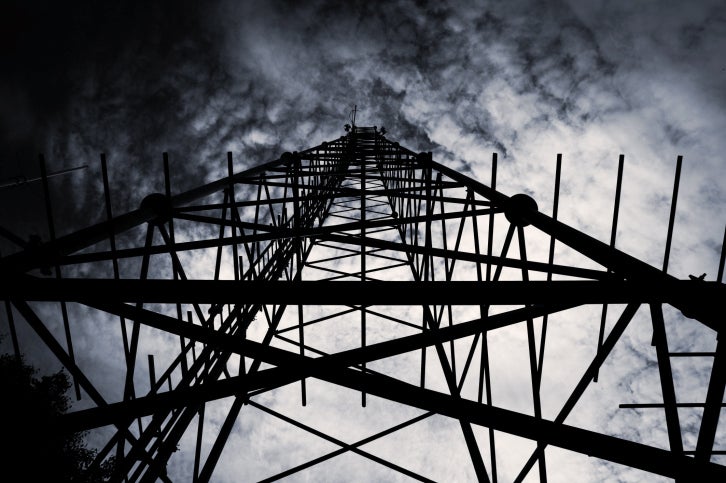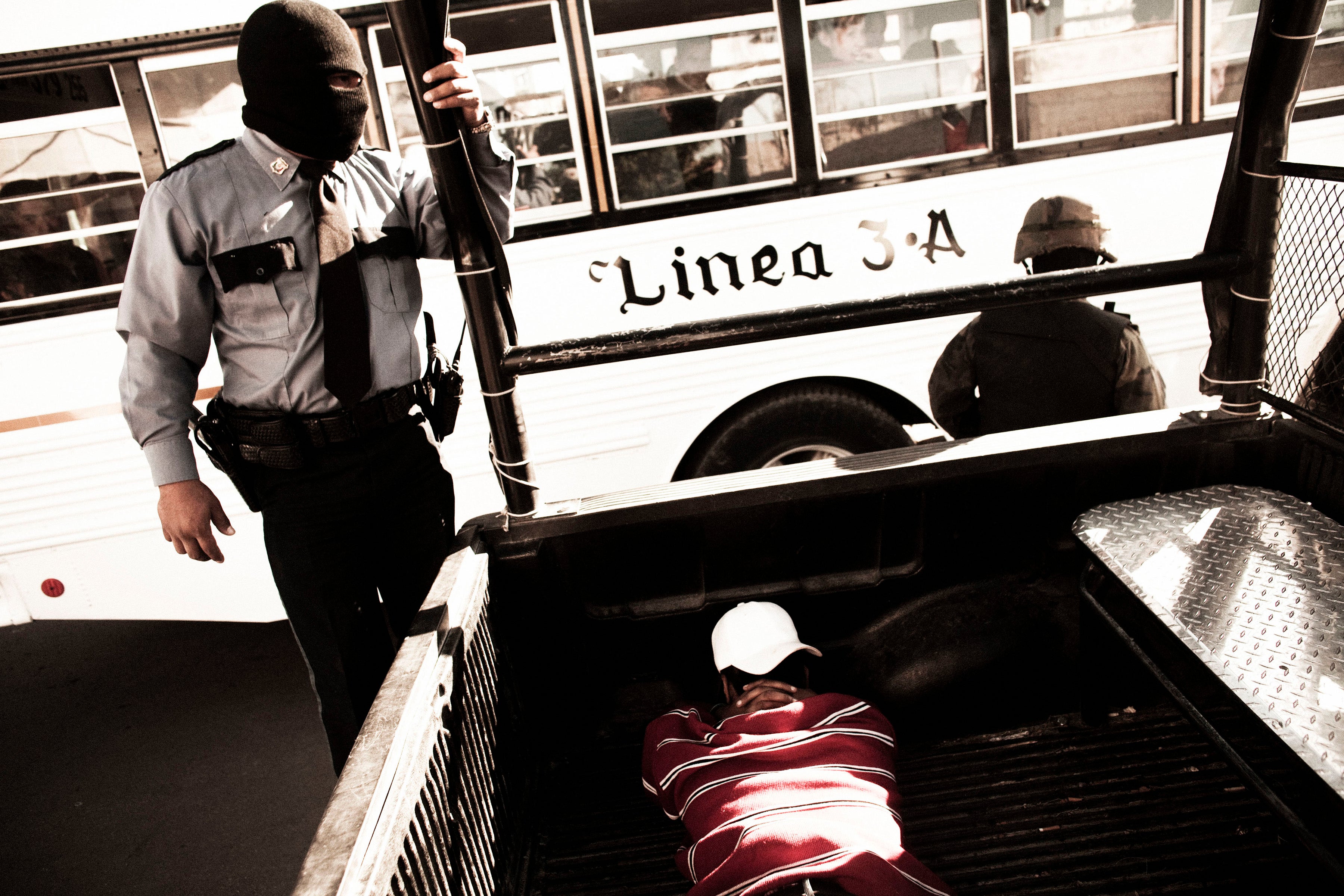Israeli forces killed at least 15 Palestinian civilians in the West Bank, most in circumstances that suggest the killings were unlawful. Israeli authorities destroyed homes and other property under discriminatory practices, forcibly displacing hundreds of Palestinian residents in West Bank areas under Israeli control, as well as hundreds of Bedouin citizens of Israel.
In the West Bank, including East Jerusalem, Israeli authorities took inadequate action against Israeli settlers who attacked Palestinians and damaged their property in 361 incidents as of October 31, the United Nations reported. Israel imposed severe restrictions on Palestinians’ right to freedom of movement, continued to build unlawful settlements in occupied territory, and arbitrarily detained Palestinians, including children and peaceful protesters.
Israel, along with Egypt, impeded the rebuilding of Gaza’s devastated economy by blocking virtually all exports from Gaza.
Hamas authorities in Gaza executed three men in 2013 and sentenced 12 others to death after unfair trials. Security forces conducted arbitrary arrests and tortured detainees. The authorities permitted some local human rights organizations to operate, but suppressed political dissent, free association, and peaceful assembly.
In the West Bank, Palestinian Authority (PA) security services beat peaceful demonstrators, detained and harassed journalists, and arbitrarily detained hundreds. Credible allegations of torture committed by the PA's security services persisted.
In July, Israeli and Palestinian leaders agreed to resume final-status negotiations, facilitated by the United States.
Gaza Strip
Israel
Israel Defense Forces (IDF) conducted occasional aerial attacks and ground incursions in Gaza. As of September 30, Israeli forces had killed three civilians in Gaza, according to the UN. They continued to shoot at Palestinian civilians in the “no-go” zone just inside Gaza's northern and eastern borders and beyond six nautical miles from the shore, wounding farmers and fishermen.
Israel did not open any criminal investigations against members of its forces for wrongdoing during “Operation Pillar of Defense” in November 2012, during which aerial bombs and air-to-surface missiles killed scores of Palestinian civilians in attacks that apparently violated the laws of war. Hamas did not prosecute anyone for rocket launches by Palestinian armed groups unlawfully targeting Israeli population centers during the conflict that killed three Israeli civilians.
Palestinians from Gaza with complaints that Israeli forces had unlawfully killed their relatives were barred from traveling to Israeli courts to testify.
Blockade
Israel's punitive closure of the Gaza Strip, particularly the near-total blocking of exports, continued to have severe consequences for the civilian population. Egypt also blocked all regular movement of goods at the crossing it controls, and imposed increased restrictions on the movement of people after the military-backed government came to power in July. More than 70 percent of Gaza’s 1.7 million people receive humanitarian assistance.
Israel allowed imports to Gaza that amounted to less than half of 2006 pre-closure levels. As of August 31, a monthly average of 78,810 tons of construction materials entered Gaza from Israel in 2013, as opposed to 174,212 tons per month before Israel imposed a closure following Hamas’s takeover, according to Gisha, an Israeli rights group.
In July, Egypt’s new military-backed government significantly tightened restrictions on the movement of Palestinians at the Rafah crossing between Gaza and Sinai, citing attacks by armed groups in the Sinai against Egyptian security forces. The number of Gaza residents passing through the crossing fell from a monthly average of 20,000 earlier in 2013 to 6,281 in July, according to Gisha. Egypt did not permit regular imports or exports of goods through Rafah and destroyed or closed many of the tunnels beneath the border that have been used for smuggling, leading to increased prices and unemployment, particularly in the construction sector. Imports of construction materials through the tunnels fell to 1,500 tons per day in July, from 7,500 tons previously. As of September, Gaza was unable to build some 250 new schools needed to adequately serve the population, according to Gisha.
“No-Go” Zones
As part of an Egyptian-brokered ceasefire agreement after hostilities in November 2012, Israel agreed to reduce the “no-go” zones it imposed inside Gaza to lands within 100 meters of the Israeli perimeter fence. Yet as of July 2013, Palestinian farmers reported that Israeli forces continued to shoot at them at distances of up to 800 meters. As of September 30, Israeli forces had killed at least one Palestinian civilian in the “no-go” zones, according to the United Nations.
Israel eased its restrictions on Palestinian fishermen, allowing them to sail up to six nautical miles from shore rather than three miles as previously. From March to May 2013, Israel again extended the fishing restriction to the prior limit in response to rockets launched by Palestinian armed groups. The UN reported that Israeli navy forces shot at Palestinian fishermen in 95 incidents during the first half of the year, double the number in the previous six months, wounding five fishermen. The closures prohibited access to 70 percent of Gaza's maritime area as recognized under international law.
Hamas and Palestinian Armed Groups
Palestinian armed groups launched 31 rockets into Israel as of November 19, causing no casualties, compared with 1,632 indiscriminate rocket attacks in 2012. The rockets launched by armed groups in Gaza cannot be accurately aimed at military objectives and amount to indiscriminate or deliberate attacks on civilians when directed at Israeli population centers.
On June 22, Hamas executed by hanging Emad Abu Ghalyon and Hossein al-Khatib, convicted in separate cases of “collaboration with the enemy.” Courts in Gaza have repeatedly accepted coerced confessions as evidence of guilt in other capital cases. In October, Hamas executed by hanging Hani Abu Aliyan, who was a child at the time of one of his two capital offenses. Abu Aliyan's lawyer said that his client had confessed to that crime under torture.
Hamas took no apparent steps to arrest or prosecute gunmen who killed seven men for allegedly collaborating with Israel in 2012. At least six of the men had been sentenced to death but were appealing their sentences when the gunmen took them from detention centers and killed them. The faces of some of the gunmen were visible in photographs widely published in the media. Hamas’s armed wing claimed responsibility for the killings.
The internal security agency and Hamas police tortured or ill-treated 180 people as of October 31, according to complaints received by the Independent Commission for Human Rights (ICHR), a Palestinian rights body.
Hamas security forces arbitrarily summoned and detained civil society activists, university professors, and members of the rival Fatah political faction.
On July 25, the prosecutor general ordered the closure of the Gaza offices of the regional broadcaster al-Arabiya and the Ma’an News Agency, a Palestinian outlet, for news stories suggesting that Hamas supported Egypt’s Muslim Brotherhood. In November, Hamas allowed Ma’an to re-open and pledged to allow al-Arabiya to do so.
West Bank
Israel
The IDF fatally shot at least 15 Palestinian civilians including 3 children in the West Bank as of September 31, most in circumstances that suggest the killings were unlawful. In January, Israeli forces shot Samir `Awad, a 16-year-old student, in the back as he fled from soldiers who had hidden and surprised him as he approached the separation barrier near the secondary school in the village of Budrus. In August, Israeli forces used lethal force against residents of the Qalandia refugee camp after clashes erupted during an arrest raid, killing three, including Roubin Zayed, 34, shot from close range while walking to work.
In August, the Israeli military closed its investigation into the death of Bassem Abu Rahmeh, who died after a high-velocity IDF tear-gas canister hit him in the chest in 2009. Video recordings of the incident showed Israeli forces firing from a short distance directly at Abu Rahmeh, who was not throwing stones or near any demonstrators. The military said it had “insufficient evidence” to prosecute any soldier for his death.
In April, Israeli forces arrested and detained a Palestinian volunteer paramedic for assisting an injured protester at the Damascus Gate in Jerusalem, Physicians for Human Rights-Israel reported. Similar cases have been reported during other protests, violating international human rights law.
Israeli authorities took inadequate action against Israeli settlers who injured Palestinians and destroyed or damaged Palestinian mosques, homes, schools, olive trees, cars, and other property. As of October 31, the UN reported 361 such attacks in 2013.
Settlement Building and Discriminatory Home Demolitions
Construction work began on 1,708 settlement housing units during the first half of 2013, an increase of 70 percent over the number begun during the same period in 2012, according to Peace Now and Israel’s Central Bureau of Statistics. After US Secretary of State John Kerry announced the resumption of Israeli-Palestinian peace talks in July, Israel advanced plans for around 3,000 more units as of September.
As of November 18, Israeli authorities demolished 561 Palestinian homes and other buildings in the West Bank (including East Jerusalem), displacing 933 people. Israeli authorities demolished every structure in the Palestinian communities of Tel al-`Adassa, near Jerusalem, and Khillet Mak-hul, in the northern Jordan Valley, in August and September respectively.
Building permits are difficult or impossible for Palestinians to obtain in East Jerusalem or in the 60 percent of the West Bank under exclusive Israeli control (Area C), whereas a separate planning process readily grants settlers new construction permits. In October, following the suggestion of the High Court of Justice, the military decided to negotiate with 1,300 Palestinian residents of eight villages in an area designated as a military training zone rather than demolish their homes.
Freedom of Movement
Israel maintained onerous restrictions on the movement of Palestinians in the West Bank, including checkpoints and the separation barrier. Settlement-related movement restrictions forced Palestinians to take time-consuming detours and restricted their access to agricultural land. In July, Israel opened a road to Hebron to Palestinians that had been closed for eight years.
Israel continued construction of the separation barrier around East Jerusalem. Some 85 percent of the barrier's route falls within the West Bank rather than along the Green Line, isolating 11,000 Palestinians on the Israeli side of the barrier who are not allowed to travel to Israel and must cross the barrier to access livelihoods and services in the West Bank. Palestinian farmers in 150 communities on the West Bank side of the barrier were separated from their lands on the Israeli side, the UN reported.
Arbitrary Detention and Detention of Children
Israeli military authorities detained Palestinians who advocated nonviolent protest against Israeli settlements and the route of the separation barrier.
Israeli security forces continued to arrest children suspected of criminal offenses, usually stone-throwing, in their homes at night, at gunpoint; question them without a family member or a lawyer present; and coerce them to sign confessions in Hebrew, which they did not understand. The Israeli military detained Palestinian children separately from adults during remand hearings and military court trials, but often detained children with adults immediately after arrest.
As of September 30, Israel held 135 Palestinian administrative detainees without charge or trial, based on secret evidence. Israeli prison authorities shackled hospitalized Palestinians to their hospital beds after they went on long-term hunger strikes to protest their administrative detention.
Palestinian Authority
Complaints of torture and ill-treatment by West Bank PA security services persisted. The ICHR reported 126 complaints as of October 31.
PA security services and men in civilian clothes identified as security employees violently dispersed peaceful protests and arbitrarily detained protesters and journalists. The PA continued to ban the distribution of two pro-Hamas weekly newspapers in the West Bank.
Palestinian courts did not find any West Bank security officers responsible for torture, arbitrary detention, or prior cases of unlawful deaths in custody. To our knowledge, the PA did not prosecute officers for beating demonstrators in Ramallah on August 28.
Attacks by Palestinian civilians injured 60 settlers in the West Bank as of September 30, the UN reported. On April 30, a Palestinian civilian killed Eviatar Borovsky, a security guard from Yitzhar settlement. In July, an Israeli military court convicted a Palestinian man for the attack.
Palestinian governing authorities in the West Bank, as well as in Gaza, delegated jurisdiction over personal status matters such as marriage and divorce to religious courts. In practice, women seeking marriage and divorce suffered discrimination. Courts required Muslim women to obtain a male relative’s consent to marry and to obtain the husband’s consent to divorce except in limited cases.
Israel
Bedouin citizens of Israel who live in “unrecognized” villages suffered discriminatory home demolitions on the basis that their homes were built illegally. Israeli authorities refused to prepare plans for the communities or approve construction permits, and rejected plans submitted by the communities themselves, but retroactively legalized Jewish-owned private farms and planned new Jewish communities in the same areas.
In September, according to the Israeli rights group Adalah, the Interior Ministry stated that it had demolished 212 Bedouin homes in 2013 and that Bedouin themselves, under threat of heavy fines, demolished an additional 187 homes. In June, the Israeli parliament gave initial approval to a proposed law that would bar Bedouin from contesting home demolition orders in court or appealing zoning plans that discriminate against Bedouin communities, raising the likelihood of increased numbers of home demolitions. Government officials estimated that the law, if implemented, would displace 30,000 Bedouin.
There are an estimated 200,000 migrant workers in Israel. In March, the Supreme Court ruled that Israel’s Work Hours and Rest Law, which provides for overtime pay, does not apply to migrant workers, mostly from the Philippines, who work as live-in caregivers for ill or elderly Israelis. Many caregivers are indebted to recruiting agencies, beholden to a single employer for their livelihood, and unable to change jobs without their employer's consent. A 2012 bilateral agreement with Thailand significantly reduced recruitment fees for Thai agricultural workers and made it easier for them to change employers.
Government policies restrict migrant workers from forming families by deporting migrants who marry other migrants while in Israel, or who have children there.
Around 60,000 African migrants and asylum seekers have entered Israel irregularly from Egypt since 2005; Israel’s almost-completed fence along its border with Egypt reduced new arrivals in 2013 to a few dozen. Israel continued to deny asylum seekers who entered the country irregularly the right to a fair asylum process and detained around 2,000 people, primarily Eritrean and Sudanese nationals. In June, the Ministry of Interior began to implement a “voluntary returns procedure” under which asylum seekers could “choose” to be deported, waiving their right to an asylum procedure, rather than remain in indefinite detention under the “anti-infiltration law.” Earlier, in May, Israel stated it had “voluntarily” deported around 500 Sudanese from detention and another 1,500 who had not been detained, and it later deported smaller groups of Eritreans through an undisclosed third country. The Supreme Court overturned the anti-infiltration law in September for violating the right to liberty under Israel’s Basic Law, and gave the government 90 days to review the cases of detainees.
Israel continued to delegate jurisdiction over marriage, divorce, and some other aspects of personal status to Jewish, Muslim, Christian, and Druze religious courts. In practice, women seeking divorces suffered discrimination, such as refusal of divorce by state-funded Jewish religious courts without the husband’s consent in up to 3,400 cases per year, according to women’s rights groups. The government did not publish figures of spouses denied divorce but women were reportedly the vast majority.
Key International Actors
The US allocated US$3.1 billion in military aid to Israel in 2013 and $427 million in assistance to Palestinian security forces and economic support to the PA. In July, Israeli and Palestinian leaders agreed to resume final-status negotiations, facilitated by the US.
In March 2013, the prosecutor of the International Criminal Court (ICC) stated that the “ball is now in the court of Palestine” to seek the court’s jurisdiction, after the UN General Assembly voted to recognize Palestine as a non-member observer state in 2012. Israel and the US reportedly pressured Palestinian leaders not to join the ICC, and the Canadian foreign minister threatened unspecified “consequences.”
The EU allocated €168 million (about $227 million) in direct financial support to the PA and €300 million ($406 million) in development and security sector support to the Palestinian territory for 2013.





